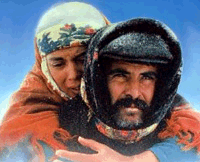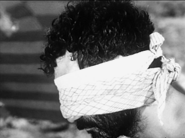Like Zeki Demirkubuz’s preceding film, Innocence, his equally elegant third feature, The Third Page also opens to a shot of the film’s central character, in his case, a struggling bit player named Isa (Ruhi Sari) being questioned in a private room as a broken door continues to prop open. At first, the parallel framing suggests […]
Tag: Turkish Cinema
Innocence, 1997
Zeki Demirkubuz’s sophomore feature, Innocence represents a marked stylistic departure from the fragmentation and narrative asymmetry of Block-C and converges towards what would prove to be more quintessential recurring elements within his body of work: long takes, painstaking observation of temps mort, stationary camera framing, the inclusion of a hyper-extended dialogue “ellipses” (or in the […]
Block-C, 1994
In his essay on the film, critic Gözde Anaran insightfully notes that Zeki Demirkubuz had been an inmate of the Block-C penitentiary after the September 12, 1980 coup d’état. This sense of institutionalization also surfaces in the way Demirkubuz frames the middle class, high-rise residential apartment complex that provide the claustrophobic setting for his first […]
Yol, 1982
At a “half-open” detention facility and work camp on the island of Imrali, a group of hopeful, but resigned men ritualistically converge on the entrance of the main penitentiary ward: first, for the disbursement of weekly mail and subsequently, for the eagerly anticipated posting of the list of prisoners authorized for a one-week furlough. A […]
Umut, 1970
Part social realism in its searing depiction of the plight of the underprivileged against the transforming economy of an increasingly modernized Turkey, and part poetic essentialism in its psychological portrait of a desperate man succumbing to the mania of a delusive, blind faith, Yilmaz Güney and Serif Gören’s Umut (Hope) captures the precarious atmosphere of […]




